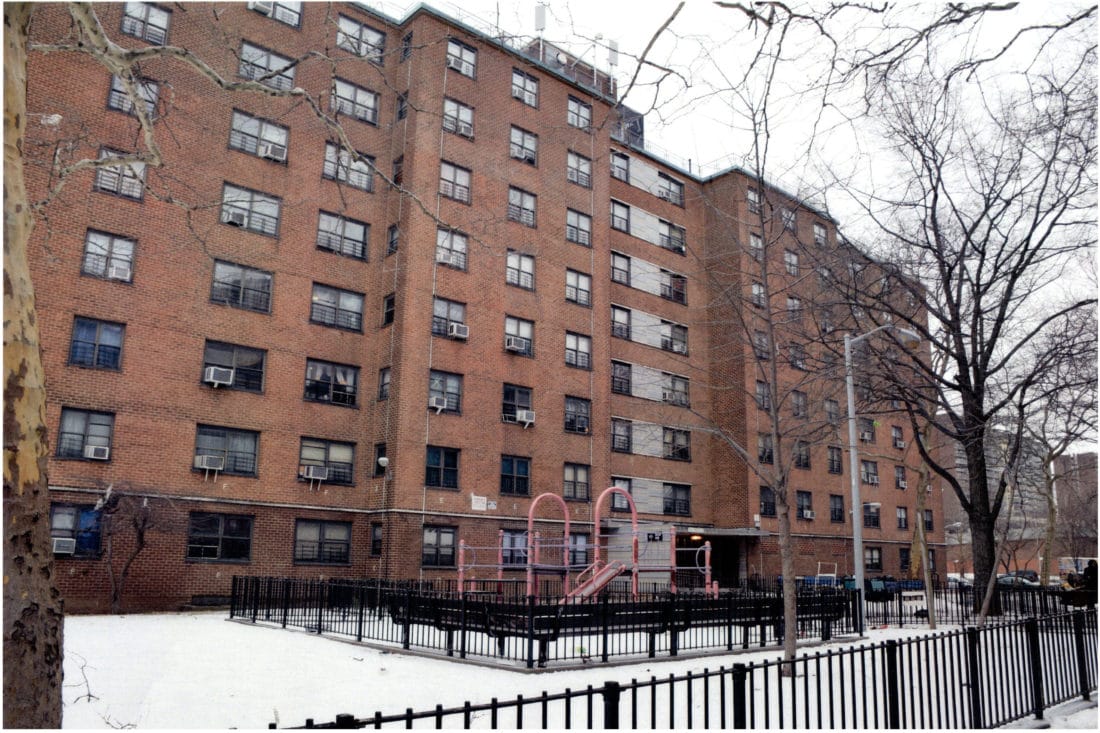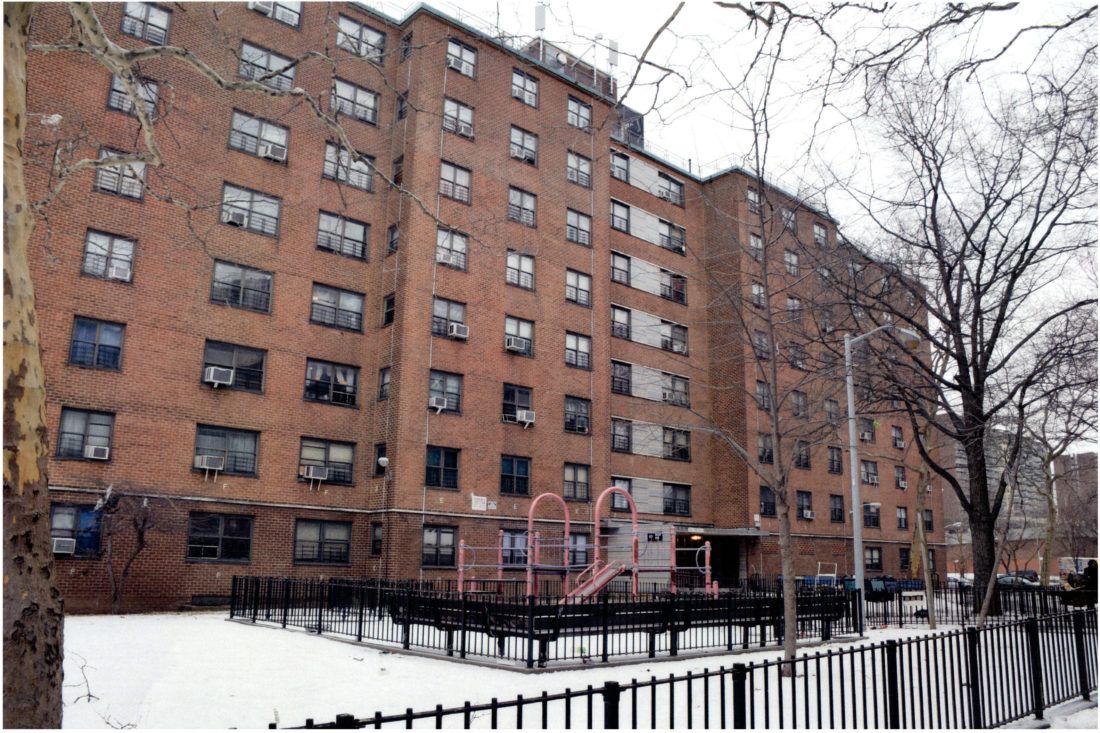$103 Million NYCHA Heat and Efficiency Investment Won’t Repair Boilers


Public housing residents in New York will be receiving efficiency upgrades to their buildings, just not the most needed ones. The New York City Housing Authority (NYCHA) announced it has secured financing for $103 million worth of heating, lighting and water conservation improvements at 41 developments across New York, including 30 in Brooklyn.
The improvements, however, won’t repair boilers in NYCHA buildings and aren’t intended to cover what a NYCHA spokesperson called “the chronic issues we face during extreme weather situations like we have experienced recently.”
The news comes on the heels of the “bomb cyclone” weather pattern that plunged New York into freezing temperatures in the first week of 2018, leading to thousands of 311 complaints from residents in public housing without heat or hot water.
NYCHA stated that currently, the heating systems at their sites are three-quarters of the way to the end of their useful life and need repairs to perform their normal function. So what will the $103 million be spent on? To monitor and better distribute any heat that is already working.
Many of the housing developments in New York City still run on mid-century heating systems, with outdoor temperature sensors running the buildings’ boiler plants. The new system will monitor temperatures inside a representative selection of units at each NYCHA site, relaying information to the building management system and mitigating apartment overheating, explained a NYCHA spokesperson.
The modern heating systems will also improve efficiency, and NYCHA predicts the project will result in a 15% reduction in energy costs, which translates to an $8.6 million savings.
The stated goal of the newly announced Energy Performance Contract (EPC) is to allow the city to make costly improvements to its housing infrastructure without sacrificing the capital dollars up-front. Bank of America will provide financing for the project in the form a 20-year loan, which will be repaid through the efficiency savings generated by the project.
The $103 million dollar contracts announced today are part of NYCHA’s NextGeneration Sustainability Agenda, which seeks to invest $300 million into public housing upgrades by 2025, financed through the public-private partnership model of the EPC. The first project, a $56 million efficiency upgrade that ran from April to June of 2017, saw energy-efficient LED light bulbs and water-conserving showerheads installed in NYCHA apartments, along with the replacement of the boiler at Fort Greene’s Whitman Houses.
In the newly-announced phase of the project, more than 16,000 units in 30 Brooklyn developments can expect upgrades of automated heating controls, indoor and outdoor LED lighting, and water conservation measures. Additional boiler replacements, like the one at the Whitman Houses, will not be part of the project’s scope.
The upgrades will begin in March of this year and are to be completed by no later than December 2019.
The investment consists of two smaller EPCs: the $60 million BQDM EPC and the $43 million Sandy-A EPC.
The first is designed to take advantage of the Brooklyn-Queens Demand Management program, a Con Edison incentive program to reduce electrical demands in Brooklyn and Queens. 23 Brooklyn housing developments will be sole beneficiaries of the $60 million investment: Williamsburg, Kingsborough, Brownsville, Van Dyke, Cooper Park, Cypress Hills, Howard, Sumner, Pink, Tilden, Roosevelt, Vernon Avenue, Hughes, Low, Glenmore Plaza, Woodson, Fiorentino Plaza, Unity Plaza and Long Island Baptist.
The Sandy-A EPC of $43 million will be used to expand on work being done to Hurricane Sandy-affected NYCHA sites being repaired with FEMA funds under the NYCHA Sandy Recovery and Resiliency Program. FEMA funding is only used to effect repairs to the level of flooding in a building, explained a NYCHA spokesperson, so the Sandy-A EPC will modernize the building-wide heat distribution systems of the Brooklyn NYCHA developments of Gowanus, Gravesend, Coney Island, Haber and Carey Gardens, along with 11 more sites in Manhattan and Queens.
All of the sites being improved by the Sandy-A EPC are slated to see major Sandy-related repairs to their boilers funded by FEMA, according to the Interactive Sandy Transparency Map. FEMA work at the Gravesend and Carey Gardens sites is still listed as in procurement, while the Coney Island and Haber sites are under construction. The FEMA work is slated to be finished by 2020.




